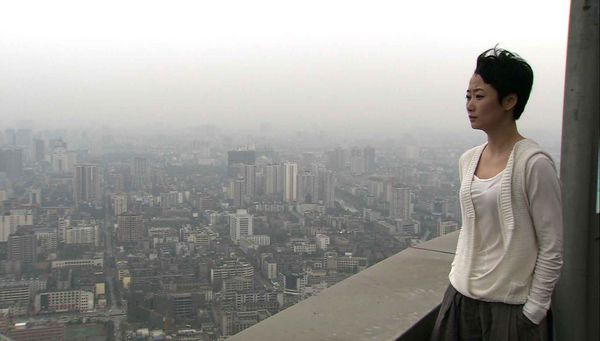Eye For Film >> Movies >> 24 City (2008) Film Review
24 City
Reviewed by: Amber Wilkinson

Documentary has been on the rise in recent years and has been matched, almost step for step, by the burgeoning output of docudramas. This melding of fact and fiction can sometimes be an unsatisfactory mix, particularly when dealing with specific well-known events and people, such as in Stephen Frears' The Queen, or Tom Hooper's Longford, since the opportunity for filmmakers to editorialise is all too great. When dealing with larger concepts that are affecting a communal psyche, however, this technique can come into its own with the fictional distillation of many people's stories adding a weight and focus to the overall argument, as in the likes of Nick Broomfield's Ghosts, which examined illegal immigration to the UK, or Brian DePalma's Redacted, exploring the nature of truth and media representation in Iraq.
This blending of truth and invention is a key plank of Chinese director Jia Zhang-Ke's work, which skates so close to documentary it is hard to spot the join. Alongside other members of China's "Sixth Generation", he has shifted the focus from the epics of the likes of Zhang Yimou to an altogether more stark form of realism, focussing on the changes sweeping the country.

In last year's Still Life, Zhang-Ke explored the monumental transformation of the landscape of rural China, courtesy of the flooding of The Three Gorges Dam, carefully intervweaving footage of an actual town being flooded with a loose narrative about the search for lost love. Now, in 24 City, he returns to the subject of China's shift away from state-driven employment to something more akin to the market economy of the West.
He focuses on a munitions plant in Chengdu, which is being dismantled for conversion into a luxury apartment complex – the 24 City of the title - and intercuts footage with real former employees and testimony from actors, including veteran Joan Chen. By mixing these techniques, he is not only able to distill several testimonies down in an economy of storytelling but also to investigate the nature of memory.
As they recount tales of either working at the plant, or members of their family doing so, one is left, as in Still Life, with the impression of a totally stressed out nation, struggling to come to terms with the all-too-rapid change of pace. As the leviathan of the factory is dismantled, it becomes a physical symbol of the end of an era in which work was a way of keeping young, replaced with something that no one is yet too sure of. Despite the neat blending of real and "acted" accounts, the film is at its best when dealing with genuine events, in particular an early segment when a former worker pays an emotional visit to his mentor.
Zhang-Ke is finding a stronger voice and a greater level of invention with each passing film. Like China, his work seems to be undergoing a steady metamorphosis and promises much for the future.
Reviewed on: 06 Oct 2008














